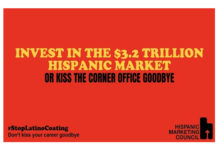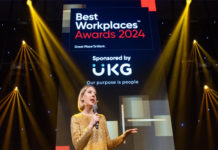The majority of workers want to go back to the workplace; and are willing to be vaccinated if it’s required by their employer, according to Randstad’s latest study.
The survey of around 27,000 workers in 34 markets, revealed that 78% of staff want to go back to the workplace at least partially, if not full-time. Additionally, 75% are willing to be vaccinated if required for their job. A global workforce fatigued by restrictions and safety concerns is emerging in 2021, with a more optimistic and hopeful outlook for the year ahead, according to Randstad’s latest Workmonitor research.
There is also a newed optimism that additional job opportunities will emerge later in the year. Around 54% think they will have more job opportunities this year; and 52% say their work experience during the pandemic has motivated them to stay with their employer for the long term.
VACCINATION SEEN AS ESSENTIAL
Most employees believe their work places need to be much safer than they are now for organisations to return to a pre-pandemic state. Many now see an increase in vaccination rollout as ‘essential’. In fact, 53% of workers say they won’t feel safe in the workplace until others around them are vaccinated; and 51% prefer to work from home until the vaccine is widely distributed.
The survey revealed that just a quarter of workers are required by their employer to be vaccinated; with the highest percentage located in Asia and the lowest in Southern Europe. However, an overwhelming majority (75%) of employees say they are willing to get vaccinated if required. In fact, more than half (56%) believe they will have more job opportunities if they are vaccinated. This indicates a strong role for business at a critical time in the global vaccination rollout.

STRONG DESIRE TO RETURN TO WORKPLACE
Remote work concerns cited by workers include feelings of isolation, the inability to strike a healthy work-life balance and the longing for personal connections, revealing a desire to return to the work place. In fact, 52% said they miss in-person interaction with colleagues, and more than one-third of those 18 to 24 years old feel lonely – the highest percentage among all age groups.
These challenges have created a strong desire to return to the office; however, not necessarily in the same way as before the pandemic. Approximately, 54% of respondents enjoy a hybrid work environment where they are in charge of choosing their workplace.
Anticipating what workers will need over the next few months, pivoting with public health guidelines and planning for more workplace reopenings, will require employers to adapt quickly to ensure workers feel supported through the transition. The most useful action cited by over a quarter of respondents (27%) is that organisations need to strengthen their policies to help workers maintain a proper work-life balance.

FUTURE OPTIMISM
The data reveals that after a year of restrictions and lockdowns, the global workforce has grown accustomed to these conditions; but they are more hopeful about the months ahead. Around 54% anticipate a better jobs market. However, women are generally less hopeful about the jobs market, as they have been adversely affected throughout the pandemic.
| Confident around more job opportunities available later this year | |||
| Americas | 63% | ||
| APAC | 63% | ||
| Eastern Europe | 49% | ||
| Northwestern Europe | 51% | ||
| Southern Europe | 43% | ||
| All regions | 54% | ||
Although optimistic about future job opportunities, 52% of respondents say their work experience has motivated them to stay with their employer for the long term. Additionally, around 30% said the experience they’ve had with their employer during the past year has spurred them to be more productive.
“To help employers instil greater confidence around wellness and safety, C-suite and human capital leaders need to map what a post-pandemic work environment looks like; whether that means hybrid schedules to maintain distancing in the office, incentive programmes to encourage widespread vaccination or more employee assistance programmes offering a variety of support mechanisms,” stated Marc-Etienne Julien, CEO of Randstad Canada & Managing Director, Global Talent. “Even when most of the global workforce is inoculated, it will take time for the workforce to acclimate to so much change ahead.”
Click here for more information about the report.




































